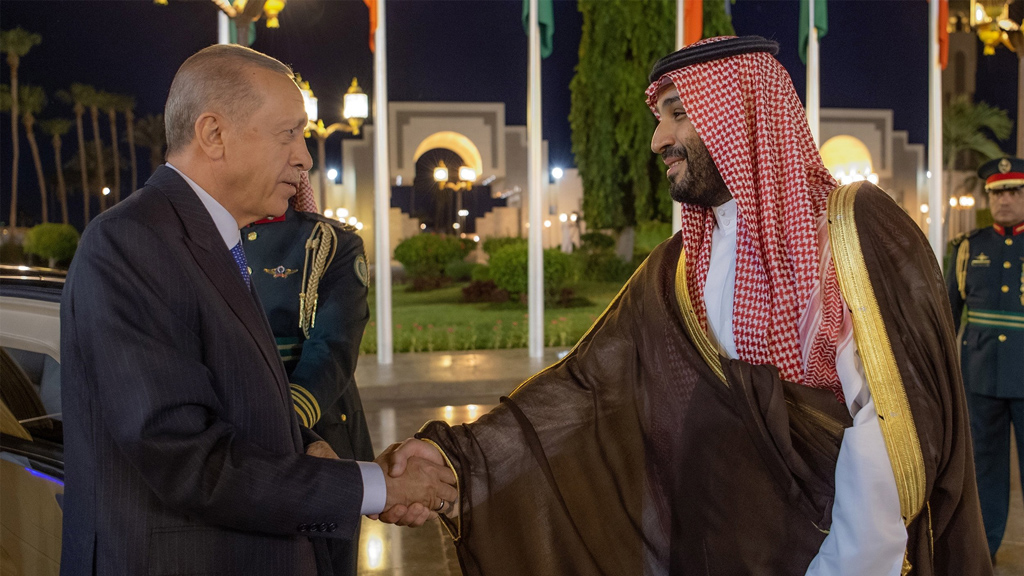
New chapter in Turkish-Gulf ties beyond normalization
President Recep Tayyip Erdoğan visited Jeddah, Saudi Arabia, on Monday as part of his tour of the Gulf states. Over the course of four days, he will visit Saudi Arabia, Qatar, the United Arab Emirates (UAE) and the Turkish Republic of Northern Cyprus (TRNC) with a focus on investments and commercial relations. However, it is possible to argue that Erdoğan’s trip goes beyond strictly economic relations and marks the beginning of a new chapter in Türkiye’s relations with the Gulf.
Share
President Recep Tayyip Erdoğan visited Jeddah, Saudi Arabia, on Monday as part of his tour of the Gulf states. Over the course of four days, he will visit Saudi Arabia, Qatar, the United Arab Emirates (UAE) and the Turkish Republic of Northern Cyprus (TRNC) with a focus on investments and commercial relations. However, it is possible to argue that Erdoğan’s trip goes beyond strictly economic relations and marks the beginning of a new chapter in Türkiye’s relations with the Gulf.
Having turned Sweden’s NATO membership bid into an opportunity to rekindle Türkiye’s relations with the West at last week’s Vilnius summit, the Turkish leader ventured beyond normalization with the Gulf states. His administration, which ended tensions with Saudi Arabia and the UAE over the last two years, currently promotes multidimensional regional cooperation. Appearing before cameras at Istanbul’s Atatürk Airport, Erdoğan described the framework for that initiative as follows: “The ongoing crises in the Muslim world call for close consultations and cooperation with the Gulf.” Furthermore, he linked his plan to strengthen Türkiye’s relations with the Gulf states to “creating a peace, stability and welfare belt” around the country as part of his vision of “consolidating the Türkiye axis” – which was featured in his 2023 election manifesto. That approach goes beyond bilateral trade and promotes a broad range of steps, including mutual investments, defense cooperation, national security and solidarity in the face of regional and global problems.
The obvious question is how the relevant countries set aside tensions to pursue normalization and, subsequently, multidimensional cooperation.
Undoubtedly, Türkiye’s decision to take bold steps in its dealings with the Gulf states reflects the international system’s evolution – which encouraged all relevant parties to pursue normalization. Washington’s partial retreat from the Middle East and the Joe Biden administration’s efforts to reposition the United States in that region encouraged regional powers, which could not defeat each other, to normalize their relations.
Moreover, the Ukraine war made it easier for countries in the region to pursue autonomy in foreign policy by fueling competition between the West and Russia. It goes without saying that Türkiye seized that opportunity most effectively.
Tags »
Related Articles






